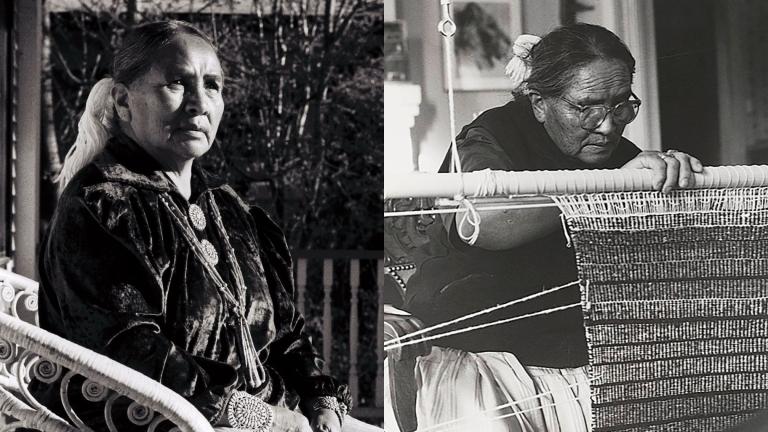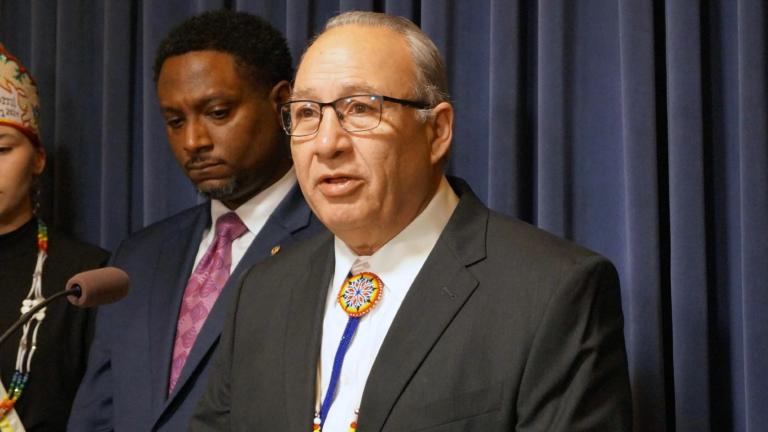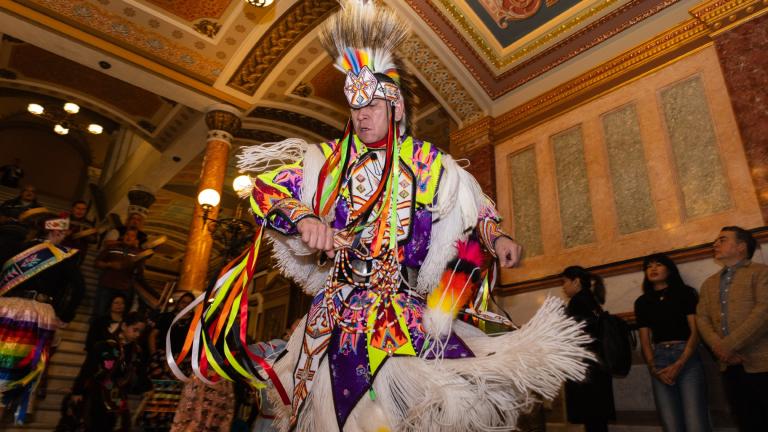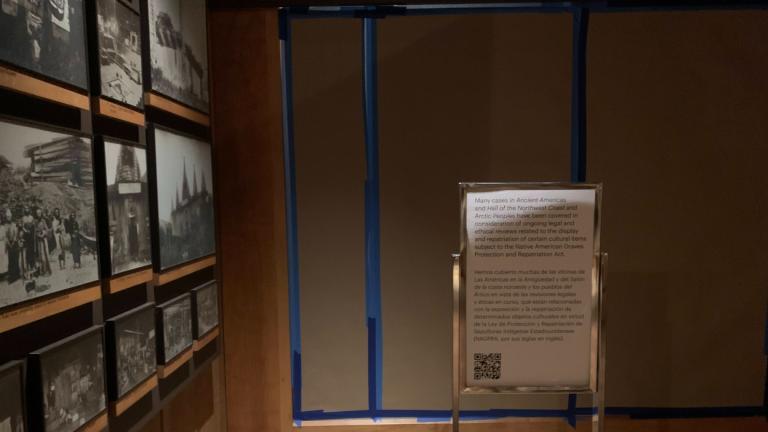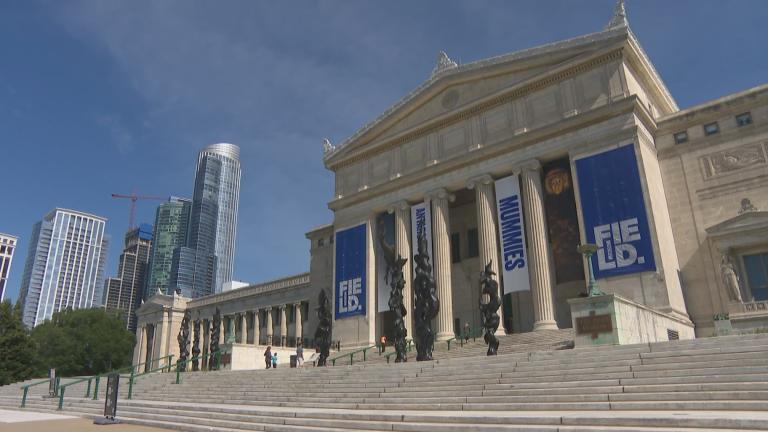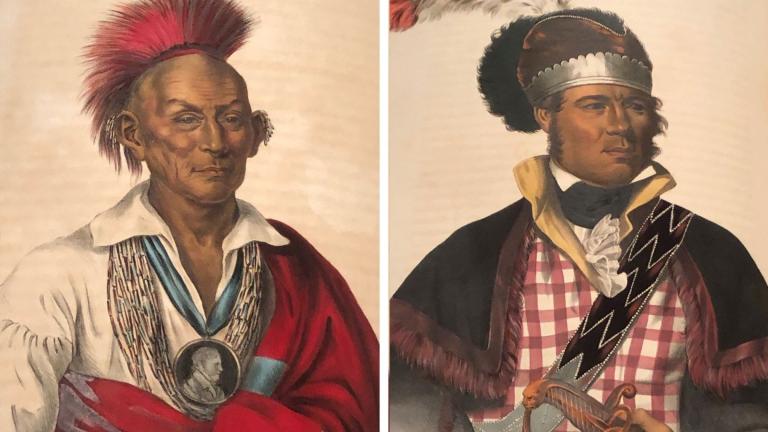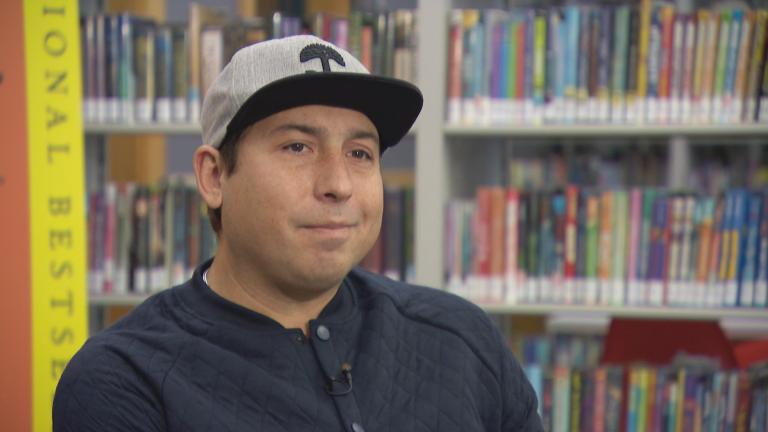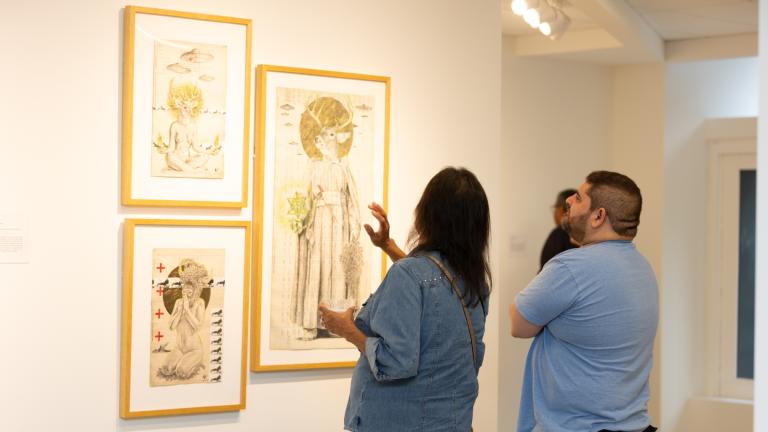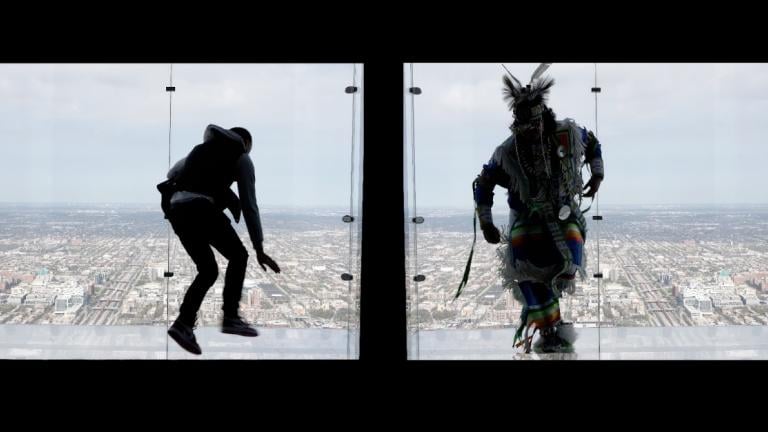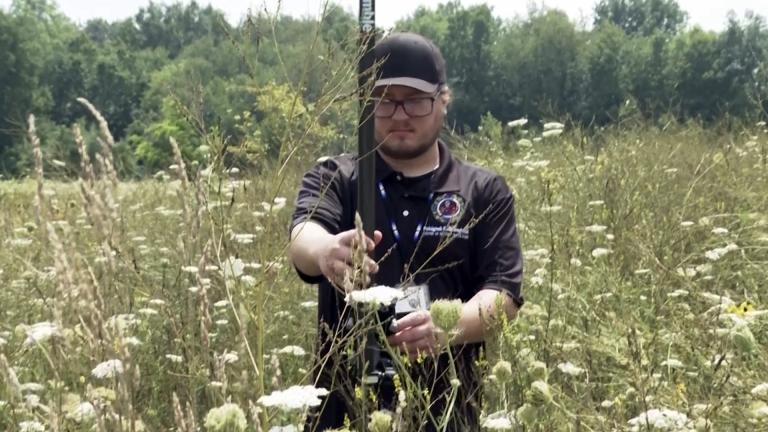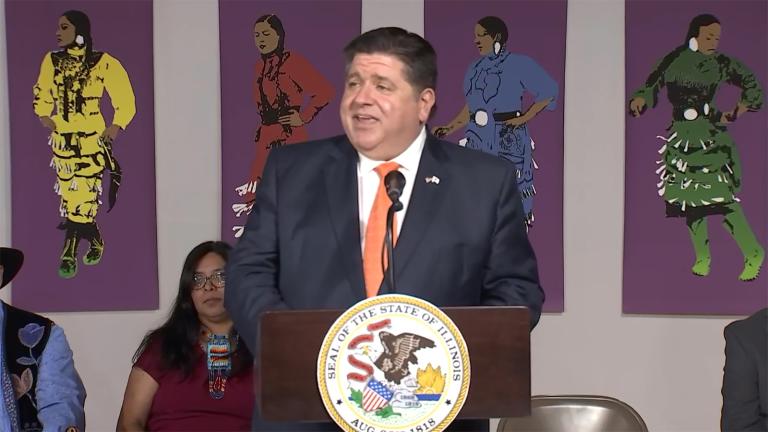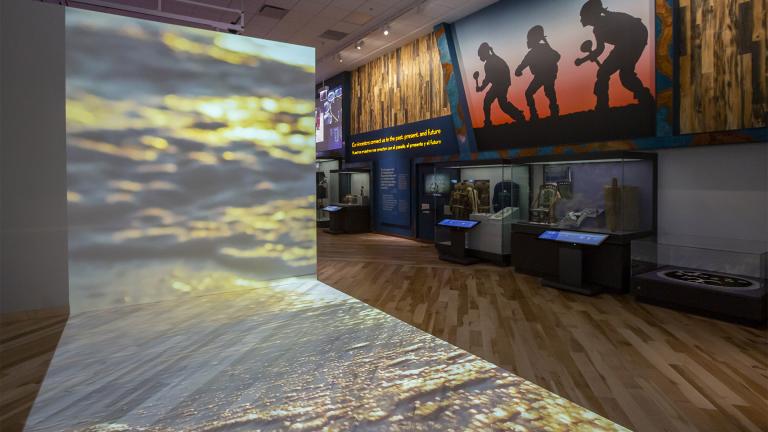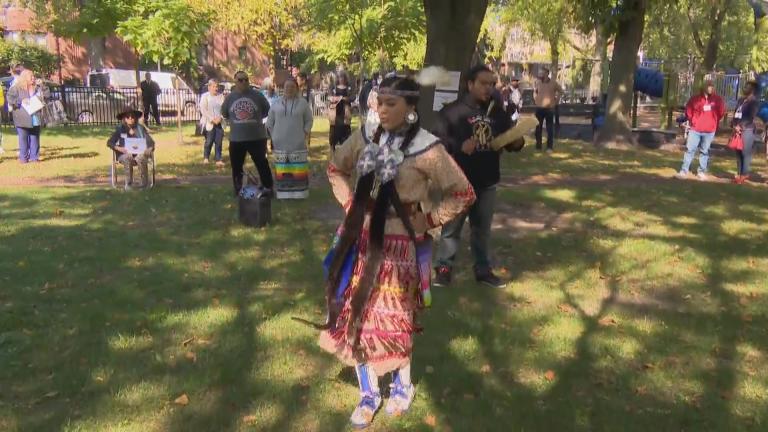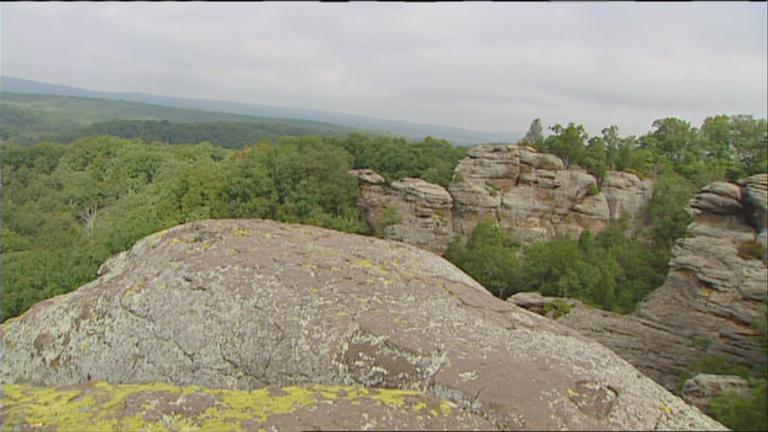“Vigilance: Learning From the Legacies of BIPOC Environmental Leaders” is inspired by the work of Hazel Johnson, a Black Chicagoan known as the mother of the environmental justice movement.
Native Americans
A U.S. Department of the Interior decision places portions of Shab-eh-nay Reservation land, which is located in DeKalb County, into trust for the Prairie Band Potawatomi Nation, which gives the tribal nation sovereignty over the land.
A bill pending in the General Assembly would give back roughly 1,500 acres of park land in DeKalb County to the Prairie Band Potawatomi Nation. That tribe once occupied much of the Great Lakes region but was forcibly removed in the 19th century.
“What’s disappointing is that it takes a federal law to push institutions and agencies to comply and to even just create consultation with tribes,” said Eli Suzukovich, director of cultural preservation and compliance for the Office for Research at Northwestern University.
Updated federal regulations require museums to obtain “free, prior and informed consent” from affiliated tribes before displaying or doing research on Native human remains or cultural items.
On display at the Newberry Library are selections from “History of the Indian Tribes of North America,” a set of early 19th century books rich with imagery. It’s one of the earliest and best records of what Indigenous people, including Seneca and Black Hawk, actually looked like.
Tommy Orange’s novel, “There There,” has been chosen as the latest selection for the Chicago Public Library’s One Book, One Chicago program. The book, a finalist for the Pulitzer Prize, tells the story of Native American life, not as it existed centuries ago, but as it does now.
The Center for Native Futures was founded by artists on a mission to make an epicenter of Native creativity. The inaugural exhibition showcases dynamic work from artists representing 19 Native tribes.
Filmed at the Willis Tower, on the lakeshore at the Promontory Point with the city’s skyline in the background and other locations, “Skywalkers” is set to play on a permanent loop as art of a large public commission to Chicago artists.
Centuries After Native American Remains Were Dug Up, a New Law Returns Them for Reburial in Illinois
Key to the measure is first-time authority for tribes to rebury recovered remains in Illinois, which they much prefer to relocating them to states to which the U.S. government forced their relocation nearly two centuries ago.
At a bill signing ceremony in Schaumburg, Pritzker highlighted three historic sites that were significant in Native American history in Illinois.
Thanksgiving brings families and friends together across the country, but for many Native Americans it’s also recognized as the National Day of Mourning.
The Field Museum renovated its Native North America Hall and drastically shifted its focus. The new approach emphasizes story-telling and contemporary art – as well as historical items from the collection. The exhibition space is called “Native Truths: Our Voices, Our Stories.”
Some organizations and governments are changing how they observe the holiday, if at all, while many still gather for the annual parade.
As a pair of wildfires skirt Flagstaff, the flames are crossing land dense with reminders of human existence through centuries — multilevel stone homes, rock carvings and pieces of clay and ceramic pots that have been well-preserved in the arid climate since long before fire suppression became a tactic.
The op-ed also raises the idea of doing away with the Bureau of Indian Affairs and says tribes would be “freed” of treaties with the federal government – an idea some Native Americans oppose.

